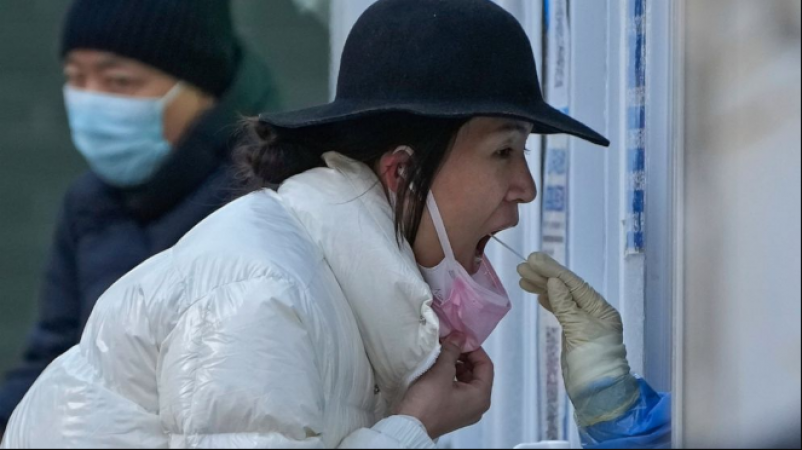
Beijing: In a sharp reversal, China has announced a series of measures that limit the harsh lockdown and ordered schools without known infections to resume regular classes, some of its most severe anti-COVID-19 restrictions. Let's take it back.
In a 10-point statement released on Wednesday, the National Health Commission specified that, with the exception of vulnerable sectors such as nurseries, elderly care facilities and schools, COVID-19 testing and a clean bill of health will not be displayed on smartphone apps. more will be required. Additionally, it limited the scope of the lockdown to specific apartment buildings and floors as opposed to entire districts and neighborhoods.
Schools that haven't had an outbreak should resume classroom instruction, and people who test positive for the virus will be able to isolate at home rather than in crowded, dirty field hospitals.
Also Read: Asia's stocks decline as China eases many COVID restrictions
The announcement comes in the wake of recent street demonstrations in several cities against the stringent "zero-covid" policy, which is now in its fourth year and continues to disrupt daily life, interfere with travel and employment, and cause serious damage. has been accused of. Country's economy.
China has attempted to maintain a tough stance while keeping the world's second-largest economy afloat, but public discontent with the sanctions has finally changed the minds of officials who defended the "zero-Covid" approach touted by others. was better than the strategy adopted. Countries that are open in an effort to learn from China.
The commission said in a statement on its website that "relevant departments in all localities should further improve their political position ... and completely correct the 'one size fits all' simplistic approach."
The statement said the authorities "should resist and overcome formalism and bureaucracy, and take strict and detailed measures to protect people's life safety and health, and reduce the impact of the epidemic on economic and social development." should do." Authorities, often at the local level who are under immense pressure to contain outbreaks, are required to do so.
Also Read: Asian shares decline as positive data dampen expectations for a dove Fed
China reported only 20,764 new cases of COVID-19 on Wednesday, well below the daily average of 40,000 in recent days. Most of these cases are asymptomatic.
Under new rules lockdowns are limited to a maximum of five days, the sale of cold medicine is no longer subject to restrictions, and elderly vaccination programs are being stepped up.
More attention will be paid to public safety, businesses and transportation providers will no longer be required to suspend operations, and lockdown orders will no longer prevent fire exits.
The most recent protests called for the resignation of leader Xi Jinping. The protests began after at least 10 people died in a fire at an apartment building in Urumqi, China, on 25 November. Officials denied claims that locked doors or other anti-virus measures prevented firefighters or victims from getting to the scene. However, the devastation came to represent the annoyance of the public.
The National Health Commission, in its notice, did not mention any official end to the fires, the demonstrations, or "zero-Covid", which has been closely associated with Xi's authority. The policy has hindered manufacturing and international trade, keeping most visitors out of China.
For several days, the authorities have been gradually lifting the restrictions.
For the first time in months, passengers in Beijing and at least 16 other cities were allowed to board buses and subways on Monday without being tested for the virus in the past 48 hours.
Industrial hubs, such as Guangzhou, which is close to Hong Kong, have lifted most restrictions on movement and reopened markets and businesses while keeping them in areas with infectious diseases.
Also Read: Markets turned volatile after RBI hiked repo rate by 35 bps
Millions of adults in their 70s and 80s will receive the vaccination as part of the government's announcement last week that "zero-COVID" restrictions will be lifted.
Health experts and economists warn it will be mid-2023 and possibly around 2024 before vaccination rates are high enough and hospitals are ready to handle a possible outbreak of infections.